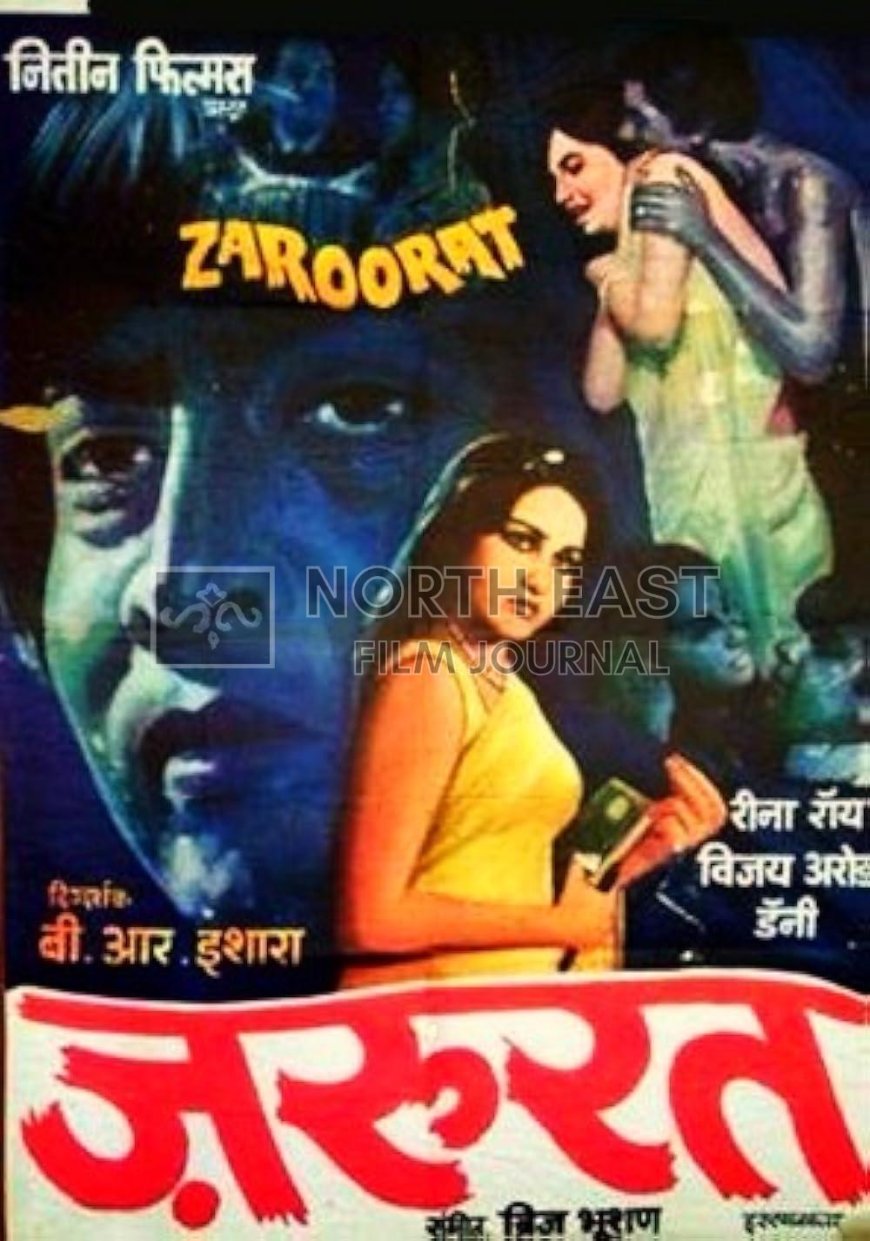THE BENGALI FILM INDUSTRY AND SEXUAL HARASSMENT
Shoma A. Chatterji provides an insightful article discussing the developments before and after the publication of the Hema Committee Report, with a special focus on Bengali cinema.

The Tollugunge film industry, with many involved in the huge mass response to the rape and murder of the R.G. Kar 31-year-old medico, is now angry with Swarup Biswas, President of the Federation of Technicians and workers of Eastern India. Biswas is a political appointee as his brother Arup Biswas is a cabinet minister of the State Government led by CM Mamata Banerjee. He has nothing to do with films but has strong political influence within the Tollygunge film industry and can decide who will get roles, who will not, who can direct a given film and who cannot, just with a nod of his head.
He is now in the soup because the Directors’ Guild of the Bengali film industry has sent him a defamation notice to Biswas recently. That these two organizations are always at loggerheads is no secret. But this time, specially with the State Govt in deep trouble, Swarup Biswas has put his foot in his mouth by stating that 60% of producers and directors of Bengali cinema have complaints of sexual harassment by women in the film industry waiting to be addressed by the Federation.
This comment is said to have been his response to the permanent suspension of producer-director-actor Arindam Sil from the Guild by reason of a complaint of his sexually a young actress during a location shoot. Sil came out with a written apology but added that his action was misinterpreted by the actress. But his apology and explanation failed to cut ice with the Guild and the suspension remains to this day.
Today, the anger by eminent producers, directors and actors of the Bengali film industry is directed at Swarup Biswas and their initial action consisted of a written comment sent to the Directors’ Guild. However, Swarup Biswas’s comment about 60% of producers and directors have been complained against for sexual harassment has stoked their anger so much that they have collectively now served a written notice protesting Biswas’ claim that amounts to their collective defamation.
The ones who have signed this complaint of defamation are Koushik Gangopadhyay, Parambrata Chattopadhyay, Anjan Dutta, Haranath Chakraborty among many others. Though these members are signatories of the notice served on Biswas, the complaint of sexual abuse by a noted director like Arindam Sil has set them thinking against the backdrop of the Hema Committee Report in Kerala released on August 27 this year. In fact, the entire storm around sexual harassment at the workplace was first made by the Bengali actress Sreelekha Mitra which led to a furore in the Kerala film industry leading to the resignation of Ranjeeth who headed the central organisaton, the Kerala Chalachitra Academy.
“The finally released after four years and shook up the Malayalam film industry, legitimising the fight of the (WCC), formed in 2017 in the wake of the high-profile rape case involving actor Dileep, to fight for,” writes Tanushree Ghosh in Money Control (September 15, 2024.)
Many years ago, an up-coming actress made an allegation of sexual harassment against actor Nana Patekar. But Patekar was a very much-in-demand actor and Tanushree Dutta was not only hooted out but because of the mental pressure, she was forced to migrate to the USA. She returned recently vowing vengeance but nothing seems to have come of it.
On August 13, 1997, the Supreme Court of India, in a surprise move, directed the Centre and State governments to enforce 12 guidelines to protect women from sexual harassment at work. The court said it was the duty of employers in the public and private sectors, to prevent harassment of women. The three-judge bench, headed by Chief Justice J.S.Verma, set the mandatory guidelines and directed all employers to "provide for resolution, settlement or prosecution of acts of sexual harassment."
The judges expanded the horizons of the definition of sexual harrassment by articulating in lucid terms, such acts as would constitute sexual harassment at the workplace. This came as an amendment to the Industrial Employment Rules, 1946. The amendment came in response to Vishaka vs. the State of Rajasthan, AIR SC 3011. As per the amendment, any of the following acts would constitute sexual harassment:
- Physical contact and advances
- A demand or request for sexual favours
- Sexually coloured remarks
- Showing pornography to women employees
- Any other unwelcome, physical, verbal or non-verbal conduct of a sexual nature.
The Court also ordered the creation of redressal units in organizations with a special counsellor or other support services, including ensuring strict confidentiality. The Court has also provided for the constitution of a complaints committee whenever necessary - headed by a woman and not less than half of its members being women and involving a non-partisan third party such as an NGO. However, the truth is far from the realization of the compulsory appointment of a sexual harassment redressal cell because most organizations either do not appoint a cell at all or choose members who, they are confident, will rule for the organization and not for the victim.
Sexual harassment is a modern-day sin. It is mainly an offshoot of women coming out of their cloistered spaces to work either to supplement the livelihood of the family or to be the sole earning member. In other words, it discourages the very ideology of working women as if they do not work at home and deprive, indirectly, the right to financial independence.
It is an ugly reality. It is an offshoot of the democratization of the workplace in terms of gender. It could be construed as a diabolic way of 'cutting women down to size' for daring to claim equal treatment at the workplace. It is also a modern-day metaphor for lust, and the abuse of power by men over women. Men who are loath to part with even a fragment of the patriarchal space they have appropriated, without question, or dispute, for so long. Men who hate women breaking the colonial concept of sexual division of labour which demanded men to go out and work and women to remain within their home as child-bearers and nurturers of 'family values.'
"Sexual harassment of women at the workplace is an important instance of the oppression of women through sex and terror" writes Sujata Gothoskar (The Sunday Observer, May 13, 1984.) "This combination of sex and terror is central to the oppression of women in the family, on the streets, at the workplace. This sexual aggression is not an aberration or some spontaneous act. It is part and parcel of a systematic and consistent strategy of men to dominate and maintain their power on women" she sums up.
*****
What's Your Reaction?
































































